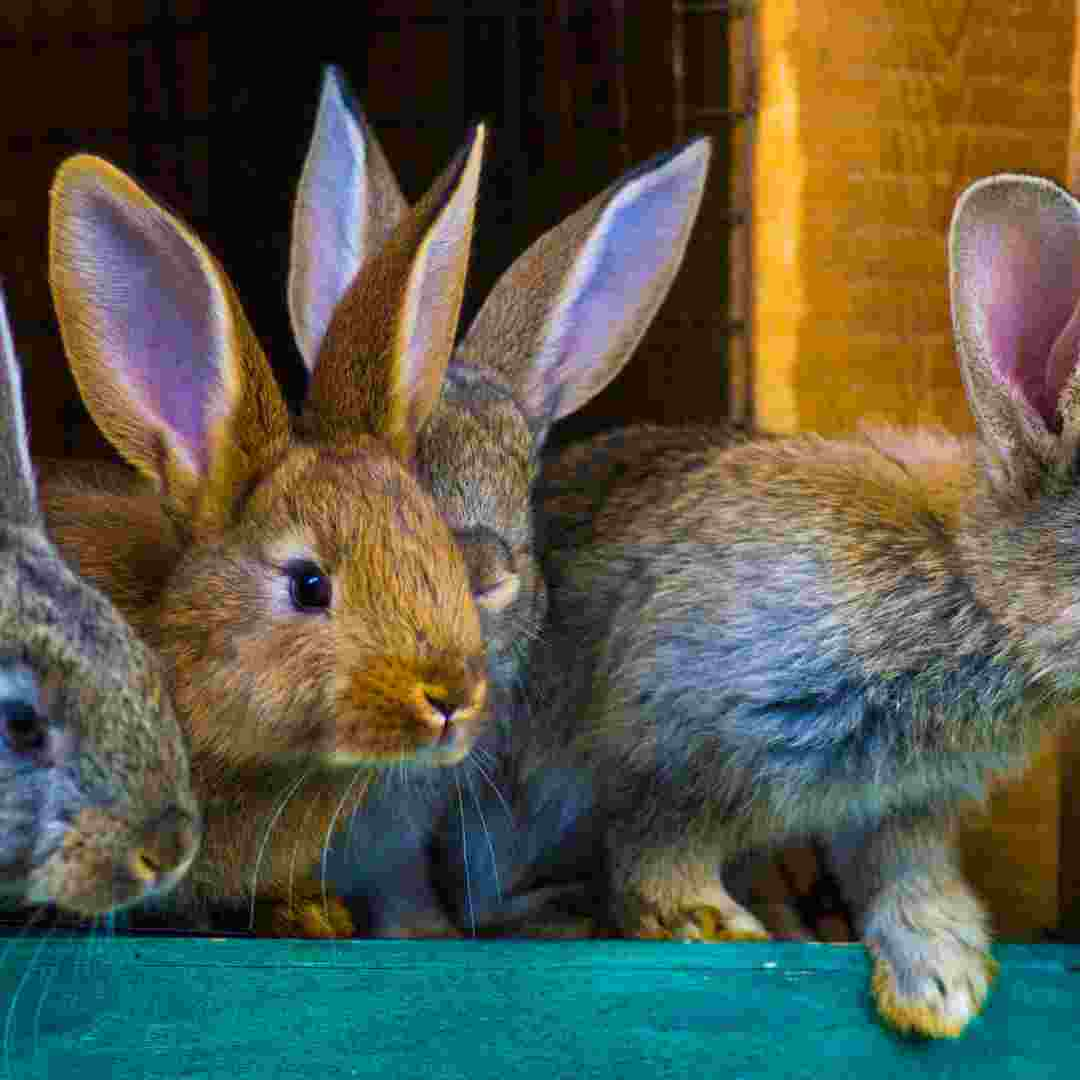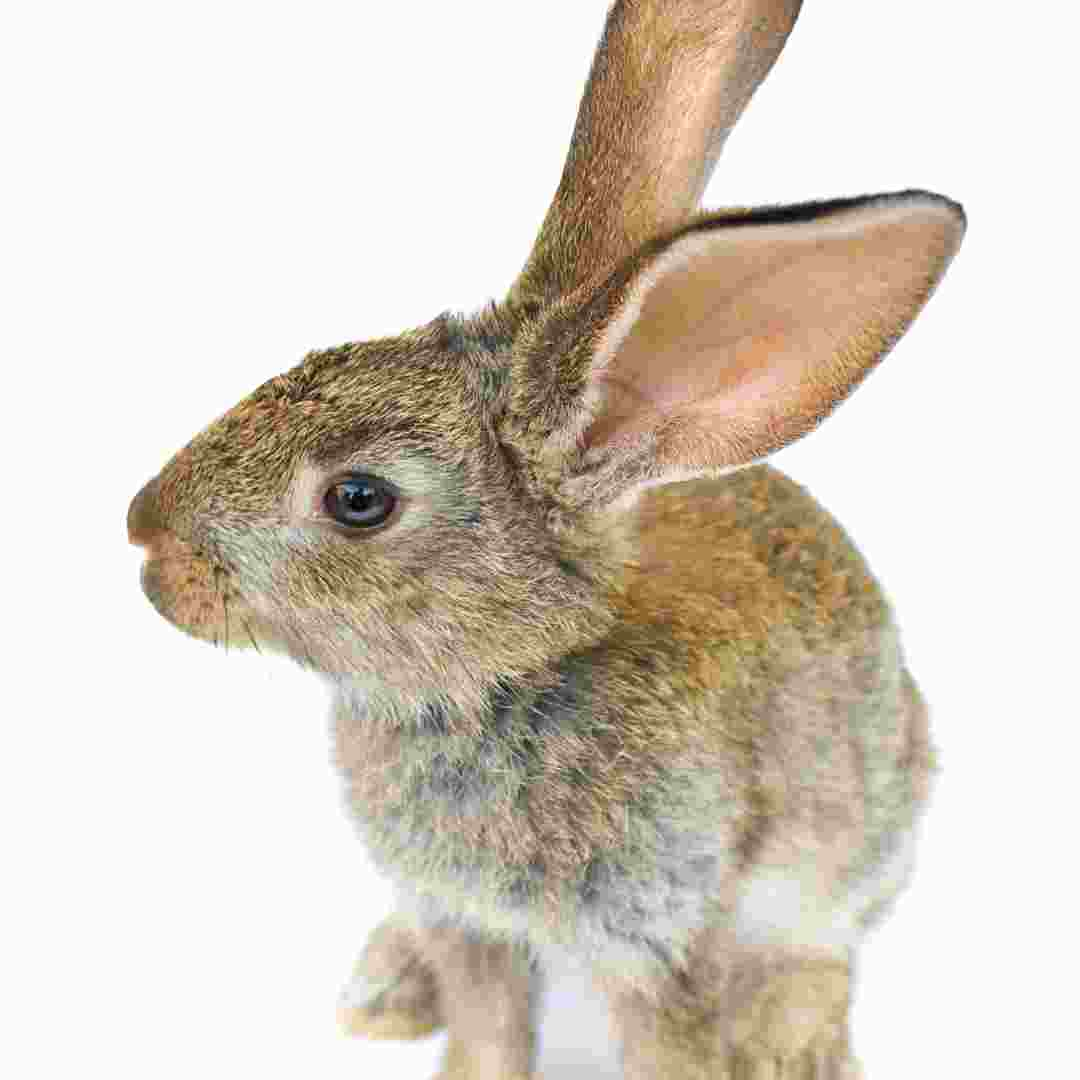Contents Table
Introduction
Learn About Rabbit Hair Loss Causes
Understanding Rabbit Hair Loss Types
Identifying and Treating Rabbit Hair Loss
The Diet-Rabbit Hair Loss Connection
Misconceptions About Rabbit Hair Loss
Q&A
Conclusion
Introduction
Pet owners often lose rabbit fur. It can be caused by stress, poor diet, parasites, and heredity. It can be scary to see your rabbit's fur come out, but knowing why and how to fix it is crucial. This article discusses rabbit hair loss causes and prevention.
Learn About Rabbit Hair Loss Causes
Pet owners often lose rabbit fur. Environmental stress, poor diet, parasites, and medical issues can cause it. You may avoid rabbit hair loss by understanding its causes.
Environmental Stress
Environmental stress is a leading cause of rabbit hair loss. Sudden environmental changes can upset rabbits. Hair loss and other health complications can result. Keep your rabbit's habitat consistent to avoid this.
Poor Diet
Nutritional deficiencies also induce rabbit hair loss. Hay, fresh vegetables, and a little pellets are rabbits' ideal diet. Nutritional deficiencies can cause rabbit hair loss. Diet must provide your rabbit with enough nutrients.
Parasites
The parasites can also cause rabbit hair loss. Rabbits can lose hair to mites, fleas, and lice. Taking your rabbit to the clinic for parasite treatment is crucial.
Medical Issues
Medical problems might also induce rabbit hair loss. Hormonal abnormalities, infections, and skin problems are examples. A vet visit is necessary if your rabbit is losing hair.
Understanding rabbit hair loss reasons lets you prevent it. Maintain a constant habitat, feed your rabbit well, and take it to the vet if you suspect a medical issue. You can keep your rabbit healthy and happy with proper care.
Understanding Rabbit Hair Loss Types
Pet owners often lose rabbit fur. Diet, stress, parasites, and medical issues might cause it. Understanding rabbit hair loss kinds might help you find and treat the reason.
Alopecia—bald spots on the rabbit—is the most frequent type of rabbit hair loss. Parasites, malnutrition, and stress can cause alopecia. If your rabbit has alopecia, take it to the vet to rule out other medical issues.
Barbering is another rabbit hair loss kind. Rabbits chew their own fur, causing bald spots. Boredom or stress can promote this behaviour, so give your rabbit lots of enrichment activities.
The third type of rabbit hair loss is moult. Rabbits shed their fur to grow new fur. Moulting is normal, but stress and malnutrition exacerbate it. If your rabbit is moulting excessively, take it to the doctor to rule out medical issues.
Finally, medical disorders can cause rabbit hair loss. These conditions include skin infections and hormone abnormalities. If your rabbit is losing hair, take it to the vet to rule out medical issues.
Understanding rabbit hair loss kinds might help you find and treat the reason. If you feel your rabbit is losing hair, take them to the vet to rule out medical issues. You can keep your rabbit's fur healthy with proper care.
Identifying and Treating Rabbit Hair Loss
Rabbit hair loss is widespread and caused by many circumstances. The first step in addressing hair loss is finding the cause. The causes and remedies of rabbit hair loss will be covered in this article.
Mites are the main cause of rabbit hair loss. Rabbit mites eat their skin and fur. Itching, redness, and hair loss can result. Mites can be identified by little, white flecks in rabbit fur. If mites are detected, treat the rabbit with topical antiparasitic medication.
Rabbit hair loss is often caused by stress. Environmental, dietary, and routine changes can generate stress. Stress can cause rabbits to lose fur in spots or all over. Provide a calm, consistent environment for the bunny to reduce stress.
Medical conditions can induce rabbit hair loss. The rabbit should see a vet if it has weight loss, lethargy, or diarrhoea in addition to hair loss.
Treatment is crucial after determining the reason of hair loss. Topical anti-parasitic drugs work best for mites. Stress-related hair loss can be reduced by creating a quiet, regular atmosphere. If hair loss is medical, the vet will recommend medication.
In addition to treating the cause of hair loss, rabbits need regular nourishment and grooming. A rabbit's coat will stay healthy on hay, fresh vegetables, and a few pellets. Regular brushing with a soft brush removes dead fur and promotes new growth.
The rabbit can restore its healthy coat by diagnosing and addressing the hair loss cause. With careful care and treatment, the rabbit should recover.
The Diet-Rabbit Hair Loss Connection
Diet affects rabbit health and hair. To avoid rabbit hair loss, it's necessary to understand their dietary demands.
Rabbits should eat hay, fresh vegetables, and a few pellets as herbivores. A rabbit's diet should be mostly hay, which provides fibre and aids digestion. Fresh veggies can disturb digestion, so feed them in moderation. Pellets are high in calories and can cause obesity, so offer them sparingly.
A rabbit's diet lacking key nutrients might cause hair loss. Bunnies need a balanced diet with fibre, vitamins, and minerals. Without enough of these nutrients, rabbit fur may dry up and brittle, causing hair loss.
Rabbits need fresh water, exercise, and a balanced diet. Exercise keeps them healthy and water hydrates their skin and fur.
To rule out medical causes of rabbit hair loss, take them to the vet. If no medical condition is identified, alter the rabbit's food to ensure they obtain enough nutrition.
In conclusion, rabbit food affects their health and fur. Rabbits need hay, fresh vegetables, and a few pellets to stay healthy and avoid hair loss. If a rabbit is losing hair, take it to the vet to rule out medical issues and change its food.
Misconceptions About Rabbit Hair Loss
Rabbit hair loss is frequent, but many pet owners are unaware of its causes and treatments. Common rabbit hair loss myths are listed below.
Myth 1: Mites cause rabbit hair loss.
Rabbit hair loss is often caused by mites, but not exclusively. Poor nutrition, stress, hormone imbalances, and genetics can also cause rabbit hair loss.
Myth 2: Poor grooming causes rabbit hair loss.
Rabbits are clean and rarely need grooming. Actually, over-grooming can cause skin irritation and hair loss.
Myth 3: Antivitamins and minerals cause rabbit hair loss.
A balanced diet keeps rabbits healthy, but vitamin and mineral deficiency does not cause hair loss. Nutritional deficiencies can cause obesity, but not hair loss.
Myth 4: Stress causes rabbit hair loss.
Stress is one reason of rabbit hair loss, but not the only one. Hair loss can also be caused by poor nutrition, hormone imbalances, and genetics.
Rabbit hair loss is incurable is myth 5.
Rabbit hair loss can be treated, depending on the cause. Mites can be treated with anti-parasitic medicine. Poor nutrition can be corrected with a balanced diet. Stress reduction can help if the cause is stress.
Pet owners may keep their rabbits healthy and happy by studying rabbit hair loss causes and treatments.

Q&A
1. What causes rabbit hair loss?
Stress, poor nutrition, parasites, and hormonal abnormalities can cause rabbit hair loss.
2. How do I know my rabbit is losing hair too much?
If your rabbit is losing more hair than usual or has additional symptoms like itching, bald spots, or scabs, it may be sick and should see a vet.
3. Can I stop my rabbit from loosing hair?
Yes, you can prevent rabbit hair loss in numerous ways. You should feed your rabbit a healthy diet, maintain its environment clean and parasite-free, and reduce stress.
4. Do rabbits shed fur naturally?
Rabbits lose fur naturally. This commonly happens in spring and autumn when the weather changes.
5. Can I regrow my rabbit's hair?
You may assist your rabbit's hair grow back in numerous ways. You should feed your rabbit a healthy diet, maintain its environment clean and parasite-free, and reduce stress. A grooming brush can also promote hair growth.
Conclusion
Natural rabbit hair loss keeps the coat fresh and tidy. It's part of the rabbit's life cycle and essential to its health. The breed, age, and health of the rabbit affect how much hair falls off. Sometimes significant hair loss indicates a health condition and should be treated by a vet.
